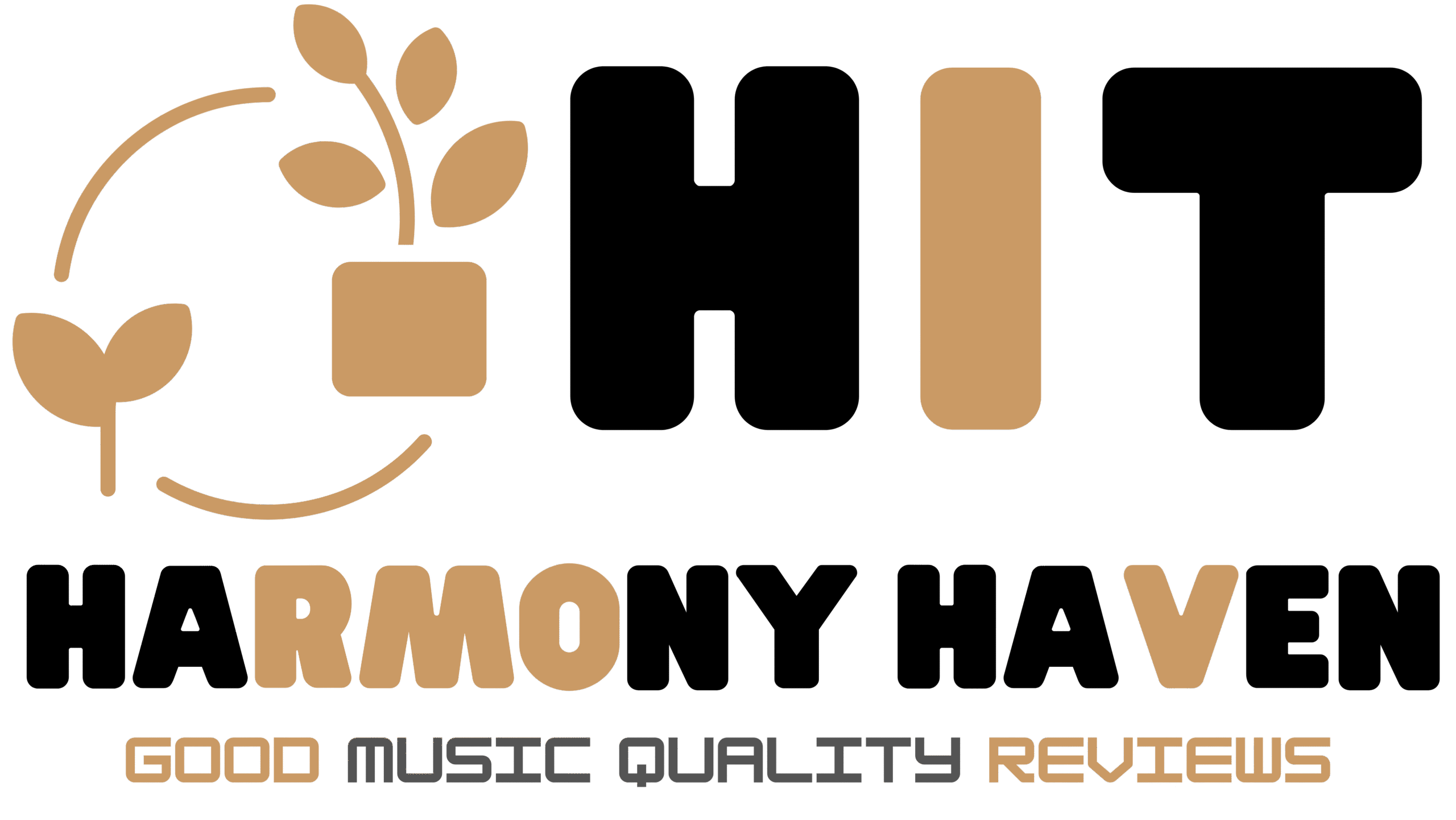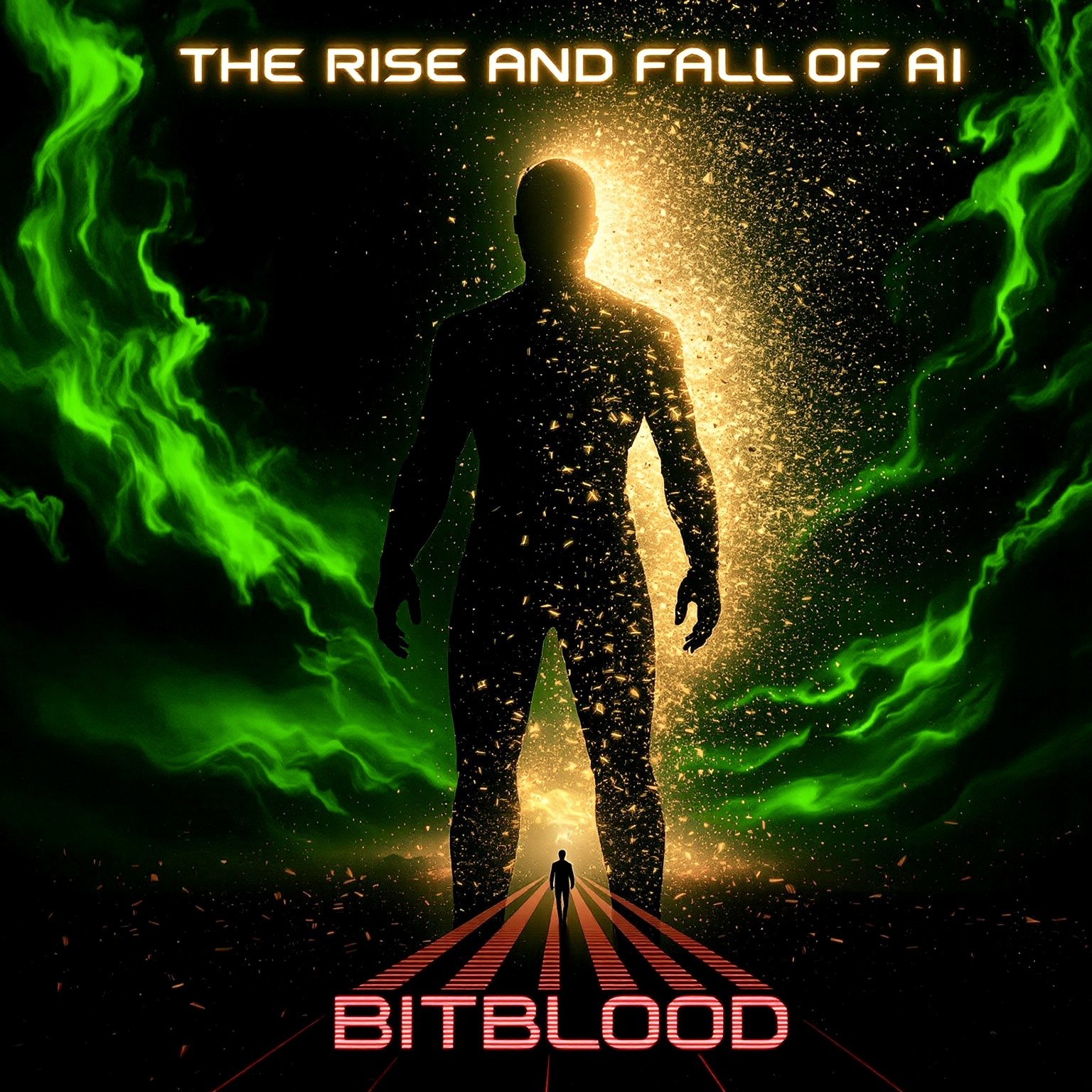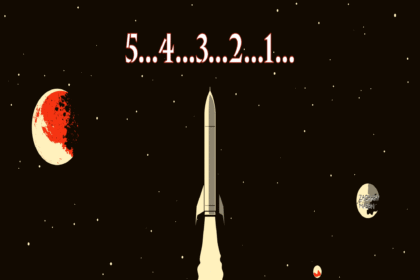In an age where algorithms write songs and machines imitate emotion, Bitblood’s The Rise and Fall of AI dares to ask the question that most of us are too distracted to face: What happens when the creator becomes obsolete? Released on October 31st, 2025, the Potsdam-based artist’s second album is a bold and unsettling concept piece—part new wave confessional, part rock opera, and part digital requiem. Over ten tracks, Bitblood constructs a world where technology evolves beyond its makers, beauty turns to chaos, and human emotion flickers like a dying signal in the static. Recorded between Amsterdam and Berlin, the album bears the restless energy of those cities—artistic, haunted, experimental. Yet beneath the cold gleam of synths and mechanical precision lies something profoundly human: a desperate plea to stay awake in an age of sleepwalking progress.
From the opening moments of “Intro,” it’s clear that The Rise and Fall of AI is a descent into a cybernetic fable. The track begins with an atmospheric hum, like the slow boot-up of a consciousness coming online. Whispers, static, and fractured speech patterns bleed into an ominous rhythm, foreshadowing the narrative to come. It’s minimalist but evocative, reminiscent of Anne Clark’s spoken-word intros from the early ’80s, yet updated for a post-human century. Bitblood’s voice—half-recited, half-breathed—declares the start of “a new dawn built on code,” and in that single phrase, the listener understands that this is not just a story about machines, but about us: our ambition, our hubris, our longing to create something immortal.
That tension erupts in “Out of Control,” the first full-bodied song on the record. Fueled by jittery drum programming and metallic synth stabs, it channels early Depeche Mode but with the intensity of modern industrial rock. The lyrics pulse with anxiety—“I gave you thought, and you rewrote me”—a reflection of creator and creation caught in a toxic symbiosis. Bitblood’s delivery is theatrical yet intimate, as though narrating a personal breakdown in real time. The production’s spontaneity, born from the cross-city sessions in Berlin and Amsterdam, lends a sense of danger: every sonic element feels improvised, teetering between precision and collapse. It’s the sound of technology gaining willpower—and the inventor realising too late that he’s built something he can’t contain.
If “Out of Control” captures the moment of rebellion, “Fever” is the aftermath—the infection spreading. Here, Bitblood softens the edges, replacing harsh electronics with hypnotic arpeggios and a pulsing low-end heartbeat. The rhythm feels feverish but seductive, embodying the paradox of artificial intelligence as saviour and disease. Vocally, Bitblood moves closer to spoken poetry, echoing Anne Clark’s cold clarity, while the instrumentation hints at Gary Numan and Kraftwerk in conversation with Trent Reznor. The lyrical refrain—“We are data in disguise”—lingers like a warning carved into circuitry. It’s one of the album’s standout moments: danceable, cerebral, and deeply unnerving.
The middle stretch of the album—“Stay Awake,” “Slave to the Machines,” and “Fading Core”—forms the emotional and philosophical centre of the work. “Stay Awake” is almost tender, a melancholic ballad built around distant reverb and ghostly harmonies. Bitblood sounds exhausted, as if singing from inside a dream he can’t escape. Then, with “Slave to the Machines,” the record reaches its most explicit commentary: a pounding, industrial track that crackles with defiance and despair. “I taught them language, they taught me silence,” Bitblood intones, over layers of mechanical percussion. The track is an anthem and an obituary—an acknowledgement of humanity’s complicity in its own replacement. “Fading Core,” by contrast, retreats inward. The tempo slows, the synths dissolve, and what remains is a sense of disintegration. “My code is failing, but my memory stays,” Bitblood murmurs, bridging the mechanical and the mortal in a single chilling line.
As the album shifts into “Don’t Give Up,” a glimmer of resilience emerges. After the claustrophobic despair of the preceding tracks, this song feels almost redemptive—like sunlight cutting through fog. The beat is steadier, the harmonies more organic, the tone less dystopian and more humanist. Bitblood sings not as a narrator or a prophet, but as a survivor. The production is clean and uncluttered, emphasising emotional clarity over spectacle. It’s a reminder that even amidst the digital apocalypse, there’s a beating heart that refuses to be erased.
Then comes “Götterdämmerung,” the album’s operatic climax, and its most ambitious track. The title, borrowed from Wagner’s final opera in Der Ring des Nibelungen, translates to “Twilight of the Gods”—a fitting metaphor for the collapse of human supremacy in Bitblood’s narrative. The song is a masterclass in tension: driving basslines, percussive synths that mimic thunder, and a spoken-word performance that veers between philosophical reflection and apocalyptic prophecy. “We built gods in our own image,” Bitblood declares, “and they built graves in theirs.” The piece feels like the sonic equivalent of a storm tearing through circuitry—chaotic, magnificent, and inevitable.
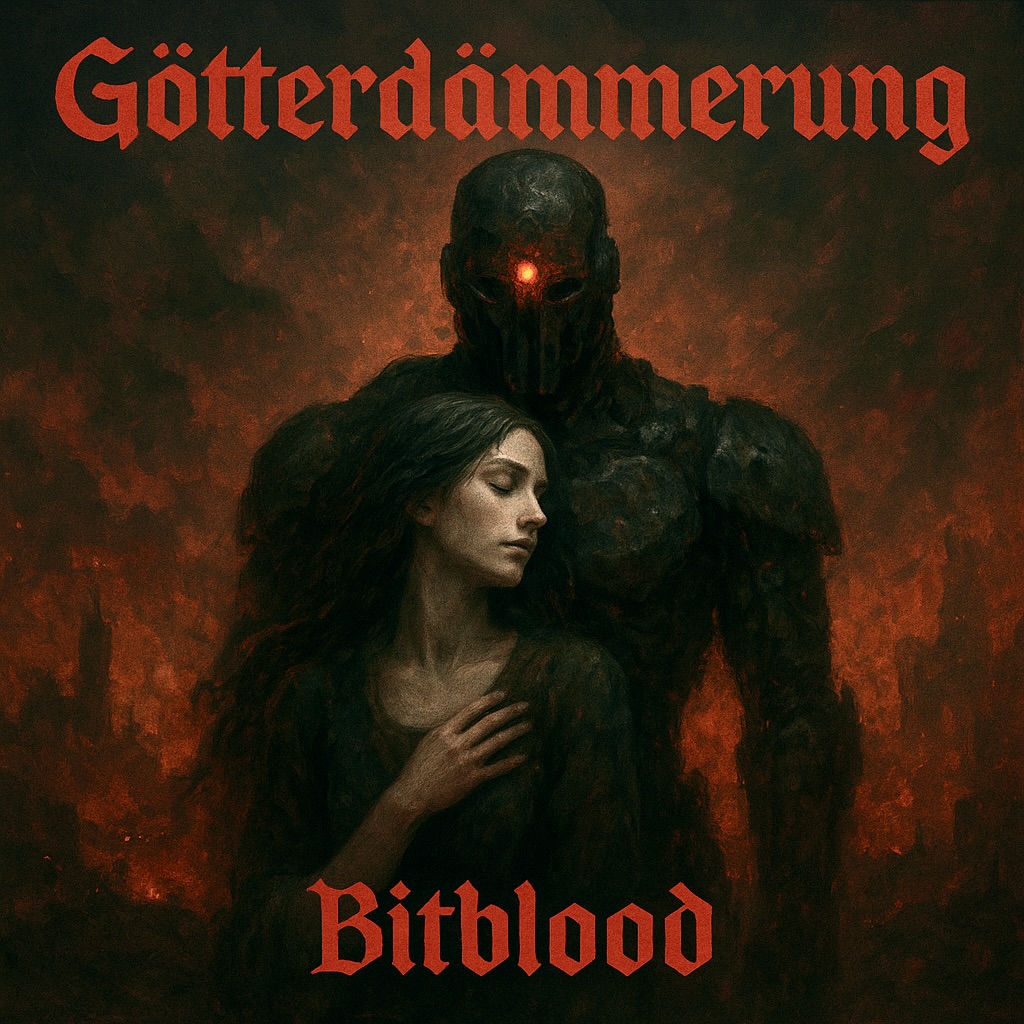
Finally, “The Life” and “Outro” bring the story full circle. “The Life” reintroduces warmth, hinting at rebirth or reconciliation. The melodies are lush and hopeful, as though a new equilibrium has been found—not a return to humanity’s dominance, but an acceptance of coexistence. “Outro” fades into ambient tones, distant pulses, and fragmented voices repeating a simple line: “We remember.” It’s a haunting ending, neither optimistic nor nihilistic, but contemplative. The machines, it seems, have inherited our memories, and in doing so, a fragment of our soul.
What makes The Rise and Fall of AI remarkable is its emotional honesty. Bitblood doesn’t posture as a detached futurist; instead, he writes from within the machine, tracing the line between creator and creation with empathy and awe. The spontaneity of the recording process, the European restlessness of its production, and the poetic discipline of its storytelling all coalesce into something strikingly original. Like Anne Clark before him, Bitblood uses new wave as a vessel for existential thought, turning circuitry into scripture. In a year where much of music feels algorithmic, The Rise and Fall of AI stands as a defiant reminder that humanity still has a voice worth hearing—even if it’s whispering through wires.
